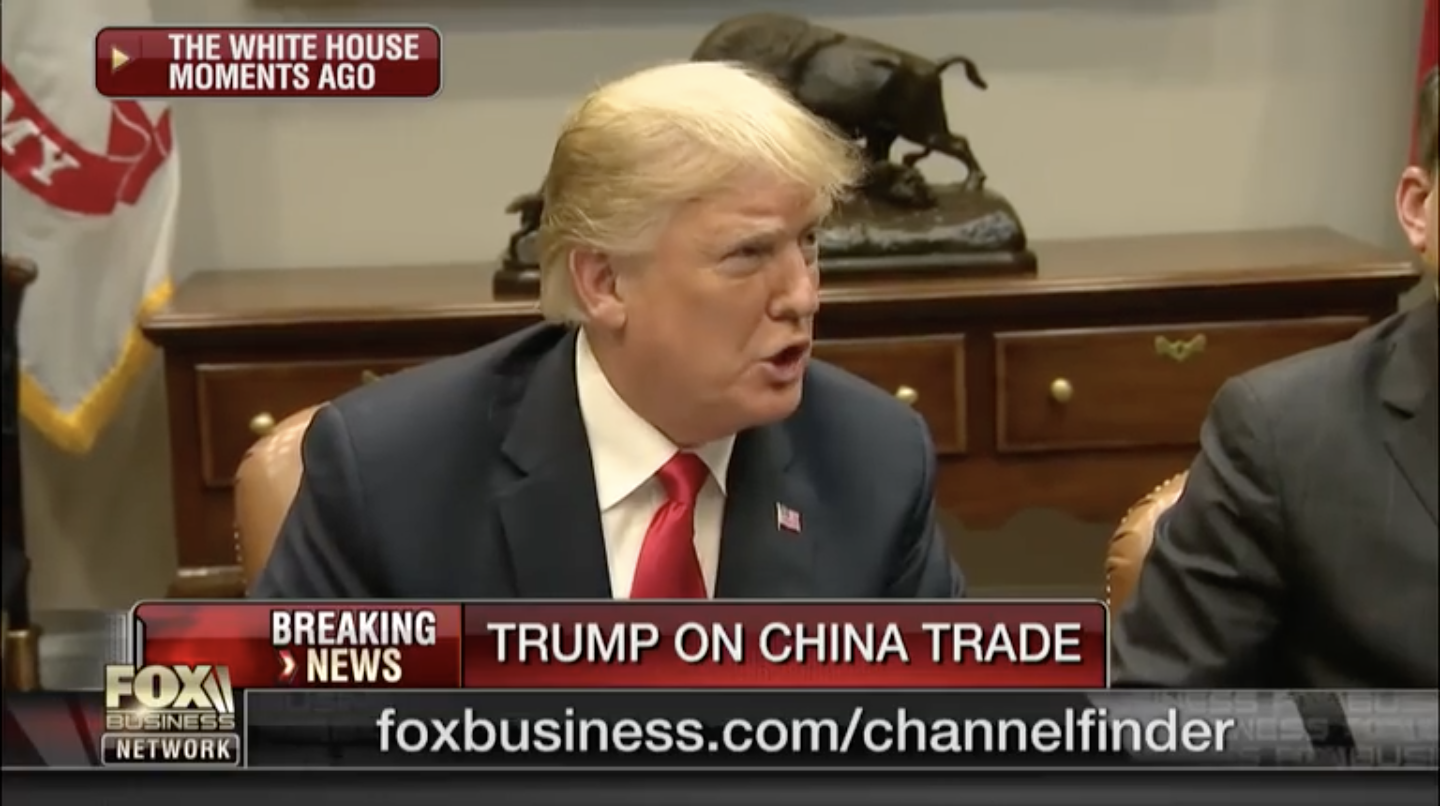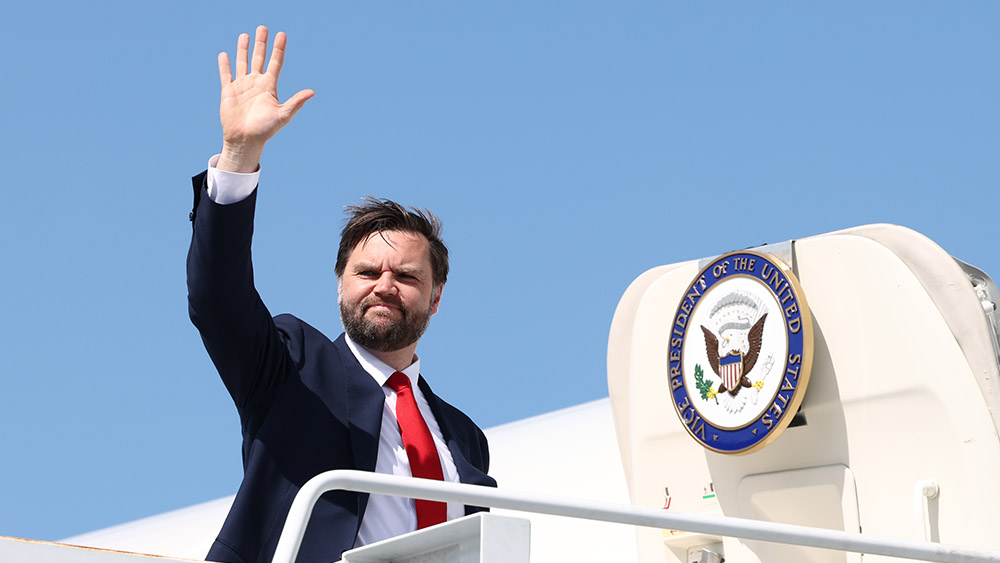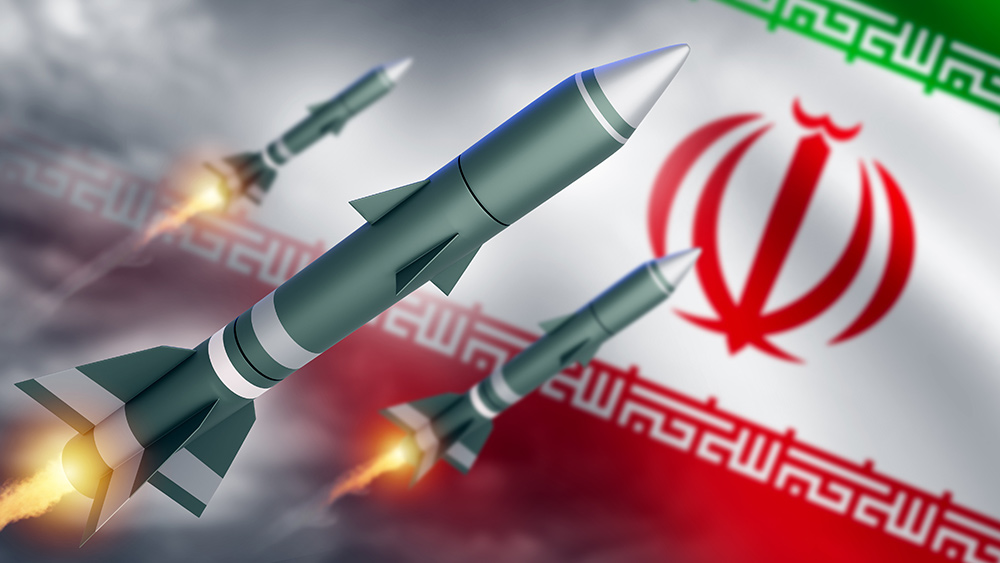 Parler
Parler Gab
Gab
- President Trump threatens an additional 50% tariff on Chinese exports if Beijing refuses to lift retaliatory 34% tariffs.
- China controls 80% of global rare earth production, crucial for military and tech industries, prompting U.S. concerns over national security.
- Trump accuses China of "economically hostile acts," including soybean export restrictions, while Beijing sanctions U.S.-linked firms.
- Stocks fluctuate as rhetoric intensifies, with Treasury Secretary Bessent warning China is "exporting its recession" globally.
- A planned Trump-Xi meeting at the Asia-Pacific Economic Cooperation summit looms, but tensions threaten to derail negotiations.
Rare earths: The hidden weapon
China currently dominates 80% of global rare earth production, a strategic advantage that has allowed Beijing to wield disproportionate influence over high-tech and defense industries. For decades, the U.S. relied on Chinese exports, but Trump’s latest tariff threat signals a deliberate push to break this dependency. The Pentagon has long warned that China’s rare earth dominance poses a national security risk. Rare earth minerals are essential for advanced weapons systems, electric vehicles and semiconductors—industries critical to America’s economic and military supremacy. By restricting exports, China could cripple U.S. defense manufacturing, a scenario Trump aims to avoid by forcing diversification.Economic hostility and market turmoil
Trump has accused China of engaging in "economically hostile acts," including deliberately withholding soybean purchases—a move that has devastated American farmers. In retaliation, the U.S. is considering bans on Chinese cooking oil imports, despite domestic alternatives being available. Financial markets have reacted with volatility. Stocks initially plunged after Trump’s tariff threat, only to rebound briefly when he softened his tone, claiming, "It will all be fine." But optimism faded as China retaliated by sanctioning five U.S.-linked subsidiaries of South Korean shipbuilder Hanwha Ocean and imposing port fees on American vessels. Treasury Secretary Scott Bessent accused Beijing of attempting to "export its recession" globally, warning that China’s export restrictions on rare earths could further destabilize supply chains. "They are exacerbating their standing in the world," Bessent remarked, suggesting Beijing’s tactics may backfire.The APEC summit: A make-or-break moment
All eyes are now on the upcoming Asia-Pacific Economic Cooperation (APEC) summit in South Korea, where Trump and Chinese President Xi Jinping are tentatively scheduled to meet. The event could either de-escalate tensions or ignite a full-blown trade war if negotiations collapse. U.S. Trade Representative Jamieson Greer hinted that the 100% tariff threat remains on the table, contingent on China’s next moves. “We can’t have a situation where the Chinese keep this regime in place, where they want to have veto power over the world’s high tech supply chains,” Greer stated. Meanwhile, China’s Commerce Ministry maintains its hardline stance: "If they want to fight, we’ll fight to the end; if they want to talk, the door is open."A global economy at a crossroads
The escalating U.S.-China trade war is more than a bilateral dispute—it’s a battle for economic supremacy with far-reaching consequences. If Trump follows through on his tariff threats, consumers could face higher prices on electronics, automobiles and industrial goods. Conversely, if China refuses to back down, rare earth shortages could disrupt defense and green energy sectors worldwide. As both nations dig in, the world watches nervously. The outcome of this high-stakes confrontation will shape global trade for years to come—and determine whether economic warfare gives way to compromise or catastrophe. In a world where rare earths are the new oil, the U.S. and China are fighting not just over tariffs—but over the future of technological and military dominance. Sources for this article include: RT.com ZeroHedge.com CNBC.comThe fragile truce: U.S. is calling the shots in Gaza, leaving Israel frustrated
By Zoey Sky // Share
Japan defies U.S. pressure, maintains Russian energy imports citing national security
By Belle Carter // Share
Don Lemon urges minority communities to arm themselves amid immigration crackdown
By Belle Carter // Share
Hamas refuses to give up arms and Gaza control, threatening fragile truce
By Zoey Sky // Share
Stock price of Bill Gates-backed Beyond Meat drops to less than $1
By Ramon Tomey // Share
Governments continue to obscure COVID-19 vaccine data amid rising concerns over excess deaths
By patricklewis // Share
Tech giant Microsoft backs EXTINCTION with its support of carbon capture programs
By ramontomeydw // Share
Germany to resume arms exports to Israel despite repeated ceasefire violations
By isabelle // Share










